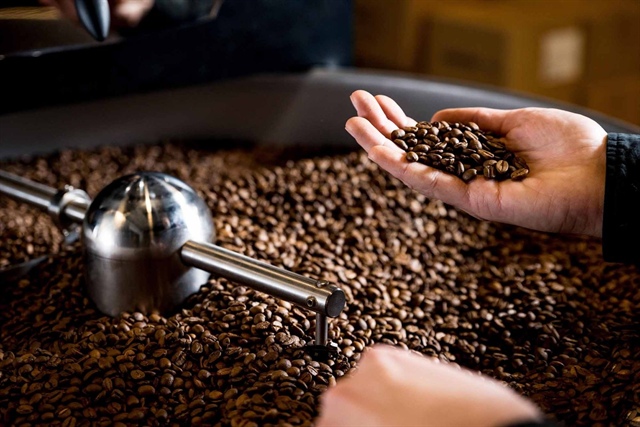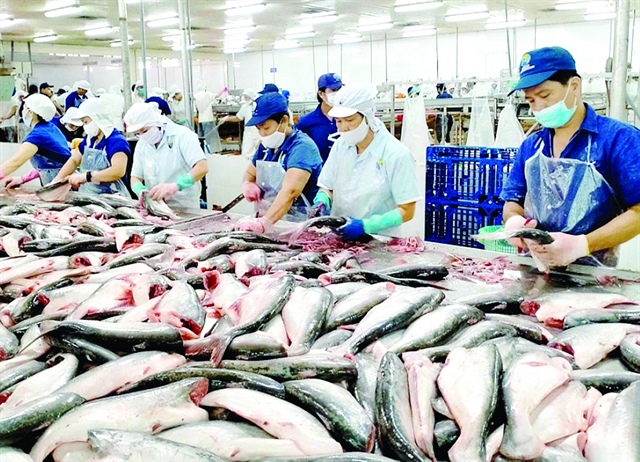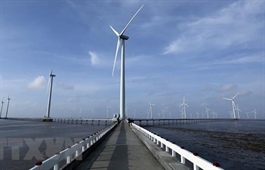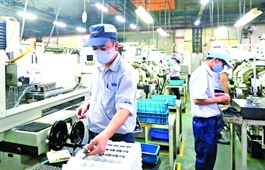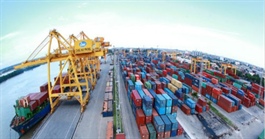Vietnam eyes major Saudi market potential for produce exports
Vietnam eyes major Saudi market potential for produce exports
With only 1.5 percent of its area arable, Saudi Arabia has to import most of the agricultural products and foodstuffs it needs, providing Vietnam with major export opportunities.
High demand
According to Tran Trong Kim, Head of the Vietnam Trade Office in Saudi Arabia, 95 percent of Saudi Arabia's land mass is rock, desert and sand, and only 1.5 percent can be used for cultivation, prompting a need for fresh, raw and processed farm produce.
|
Saudi Arabia annually imports about 1.7 million tonnes of rice, only 32,000 tonnes of it from Vietnam, mainly Jasmine rice favored by Asians. Some Saudi Arabian importers buy Vietnamese rice through Thai partners at higher prices and are seeking direct suppliers from Vietnam.
Saudi Arabia imports fresh fruits and vegetables from China, South Africa, Australia and Vietnam. Vietnam's post-harvest preservation technology remains modest, while Vietnamese products are inferior to products of the same kind from other countries in terms of appearance.
Saudi Arabia has a great demand for pepper, nutmeg, cashews, canned instant coffee and unroasted coffee, all of which are grown in Vietnam. Saudi Arabians love fresh and canned seafood such as shrimp, squid and tuna, and 12 Vietnamese companies currently export such items to Saudi Arabia. According to Kim, six months after Saudi Arabia lifted its ban on importing seafood from Vietnam in September 2020, the 12 Vietnamese enterprises exported seafood worth up to US$19 million to this market, and there is huge potential for more.
“Recently, the Vietnamese Embassy in Saudi Arabia and the Vietnamese Ministry of Agriculture and Rural Development applied for licenses for 25 Vietnamese enterprises to export seafood to Saudi Arabia. If these enterprises get licenses, Vietnam’s seafood exports to Saudi Arabia will increase considerably,” Kim said.
|
Strict standards
The Vietnam Trade Office has identified a major challenge in exports to the Arabian Peninsula due to increasing transportation costs, which have raised the price of Vietnamese rice from US$595/tonne to US$840/tonne, and the price of Vietnamese fruits and tubers by US$9.9 per kilo. Finding solutions to this problem is crucial to ensuring Vietnamese goods’ competitiveness in Saudi Arabia, he said.
Kim urged domestic enterprises to meet fully the food hygiene and safety and pesticide residues standards as well as packaging and labeling regulations when exporting goods to Saudi Arabia.
The Saudi Food and Drug Authority (SFDA) issues and sets food safety and hygiene regulations according to European and American standards, and checks their application strictly. Enterprises infracting the regulations risk having their business licenses revoked, as well as facing fines and even prison sentences, while all their substandard goods are destroyed. Saudi Arabia doesn’t allow customs clearance for foreign goods that do not meet its quality standards, conducting standard inspections across the country and issuing warnings about unsafe products. The control of substandard goods is also widely promoted via the media. Vietnamese exporters are therefore advised to carefully study SFDA’s antibiotic residues regulations for agricultural and food products, and the Saudi Standards, Metrology and Quality Organization’s (SASO) regulations on labeling, packaging, and language use, among others.
Exporters should also be advised that business managers in Saudi Arabia are mostly foreigners and salaried workers under owners’ pressure, and therefore expect fast exchanges and transactions with partners. In the Middle East, people work from Sunday to Thursday and are off work on Friday and Saturday. Businesses should avoid exchanges and transactions on these days, especially Friday, the Muslim Sabbath.
Saudi Arabian importers like to observe and directly inspect products. When offering goods, businesses should send samples directly to partners. Businesses should accept payment in advance or payment through an irrevocable LC contract with a deposit to avoid the risk of losing goods. “Recently, there were cases of many brokerage partners discussing big deals with Vietnamese companies but then asking the Vietnamese side to pay brokerage, attorney and contract approval fees. This is a trick of which businesses should be wary,” Kim said.
Most of Vietnam's goods exported to Saudi Arabia carry foreign brand names. Kim advised Vietnamese businesses to develop branding in order to carve a niche for their products in Saudi Arabia.
| Vietnamese exporters should be aware that green, clean and environmentally friendly organic products are very popular in Saudi Arabia and should therefore prepare plans and strategies accordingly to penetrate and expand market share in Saudi Arabia. |


